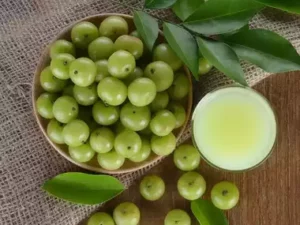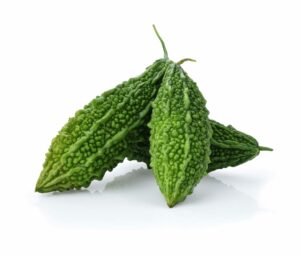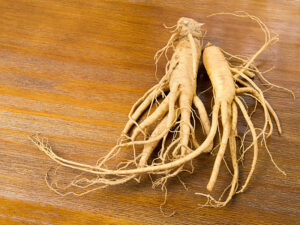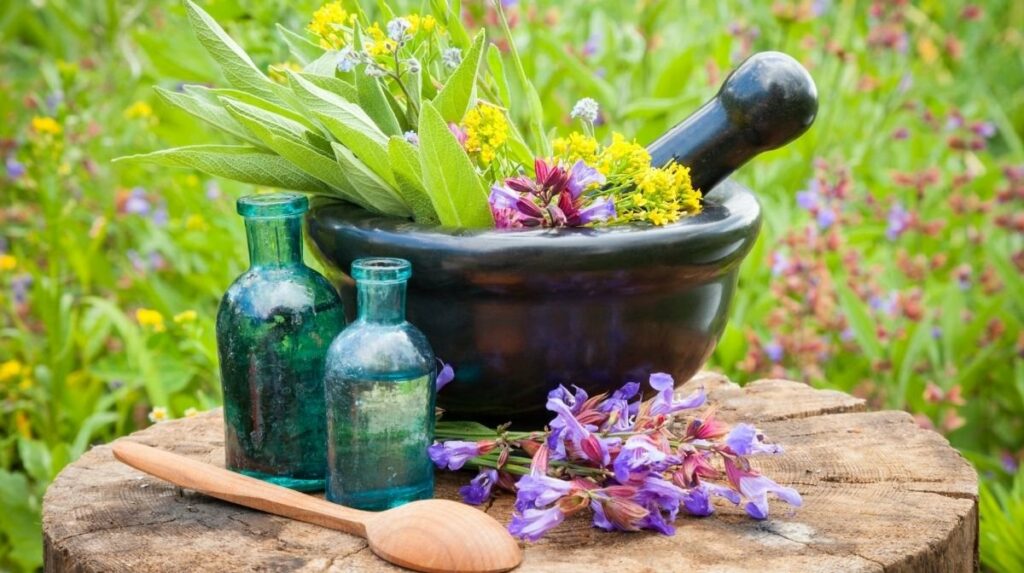Diabetes is a chronic metabolic disorder that affects millions of people worldwide. While conventional medicine plays a crucial role in managing diabetes, there is a growing interest in exploring alternative and complementary approaches. Herbal remedies, derived from nature’s bounty, have been used for centuries in traditional medicine systems to address various health issues, including diabetes. In this blog, we will delve into some herbal remedies that hold promise in managing diabetes.
Contents
- 1 Why Do People Prefer Herbal Remedies for Diabetes?
- 2 12 Best Herbal Remedies for Diabetes
- 2.1 Bitter Melon (Momordica charantia)
- 2.2 Fenugreek (Trigonella foenum-graecum)
- 2.3 Cinnamon (Cinnamomum verum)
- 2.4 Ginseng (Panax ginseng)
- 2.5 Aloe Vera (Aloe barbadensis miller)
- 2.6 Gymnema Sylvestre
- 2.7 Turmeric (Curcuma longa)
- 2.8 Indian Gooseberry (Emblica officinalis)
- 2.9 Bilberry (Vaccinium Myrtillus)
- 2.10 Neem (Azadirachta Indica)
- 2.11 Ginger (Zingiber officinale)
- 2.12 Berberine
- 3 Conclusion
Why Do People Prefer Herbal Remedies for Diabetes?

The preference for herbal remedies for diabetes is rooted in several factors, reflecting a growing interest in natural and alternative approaches to managing health conditions. While it’s important to note that herbal remedies should complement, not replace, conventional medical treatments, here are some reasons why people may choose herbal options for diabetes:
- Traditional Wisdom and Cultural Practices: Herbal remedies have been integral to traditional medicine systems across cultures for centuries. Many people are drawn to the wisdom of traditional healing practices, such as Ayurveda in India or traditional Chinese medicine, which often incorporate herbal treatments for various ailments, including diabetes.
- Perceived Naturalness and Safety: Herbal remedies are perceived as natural, derived from plants and other natural sources. This perception often leads people to believe that herbal treatments are safer and gentler on the body compared to synthetic medications. While this is true in many cases, it’s crucial to remember that herbal remedies can still interact with medications and have side effects.
- Holistic Approach to Health: Herbal remedies are often associated with a holistic approach to health, addressing not only the symptoms but also the underlying causes of a condition. Many herbal treatments aim to restore balance within the body, supporting overall well-being rather than simply targeting specific symptoms.
- Fewer Side Effects: Some people prefer herbal remedies due to the perception of fewer side effects compared to pharmaceutical drugs. While herbal remedies can indeed be gentler on the body, it’s essential to recognize that they can still cause adverse effects or interact with medications, emphasizing the importance of consulting with a healthcare professional.
- Accessibility and Affordability: Herbal remedies are often more accessible and affordable than prescription medications. In many regions, herbs are readily available and can be cultivated or purchased at a lower cost than pharmaceutical drugs. This accessibility can make herbal remedies an attractive option, especially for individuals with limited financial resources.
- Personalized Approaches: Herbal medicine allows for a more personalized approach to treatment. Different herbs may work better for different individuals based on their unique constitution and health conditions. This personalized aspect of herbal medicine resonates with those seeking individualized solutions to their health concerns.
- Prevention and Maintenance: Some individuals turn to herbal remedies for diabetes prevention or as part of a maintenance plan for overall health. Certain herbs are believed to have preventive properties, and incorporating them into one’s diet may be seen as a proactive step toward maintaining wellness.
- Cultural and Social Influences: Cultural and social factors play a significant role in health choices. In communities where herbal remedies have been a traditional part of healthcare practices, individuals may be more inclined to use them for diabetes management, influenced by the beliefs and practices of their community.
12 Best Herbal Remedies for Diabetes
Here’s a list of 12 herbal remedies for diabetes for your selection:
Bitter Melon (Momordica charantia)

Bitter melon, also known as bitter gourd, is a tropical vine native to Asia, Africa, and the Caribbean. It has long been used in traditional medicine systems like Ayurveda and Traditional Chinese Medicine to manage diabetes. Bitter melon contains compounds such as charantin, vicine, and polypeptide-p, which are believed to have blood sugar-lowering effects. Charantin is thought to have insulin-like properties, while polypeptide-p may stimulate insulin secretion and improve glucose utilization.
The fruit can be consumed in various forms. This is included as a vegetable in cooking, as a juice, or as a supplement form. However, caution is advised as excessive consumption may lead to hypoglycemia, and individuals on medication should consult with healthcare professionals before incorporating bitter melon into their regimen.
Fenugreek (Trigonella foenum-graecum)
Fenugreek, an annual herb native to the Mediterranean region, has been used for centuries in both cooking and traditional medicine. All Fenugreek seeds are rich in soluble fiber and compounds. This is like trigonelline and galactomannan, which may contribute to their anti-diabetic properties. The soluble fiber in fenugreek slows down the absorption of carbohydrates, leading to improved blood sugar control. Additionally, fenugreek may enhance insulin sensitivity, allowing cells to better respond to insulin.
The seeds can be added to various dishes or consumed as tea. While fenugreek is generally safe, excessive intake may cause gastrointestinal discomfort, and individuals on medication should consult with healthcare professionals before using fenugreek supplements.
Cinnamon (Cinnamomum verum)
Cinnamon, derived from the bark of trees belonging to the Cinnamomum genus, is not only a popular spice but also a potential ally in diabetes management. The active compounds in cinnamon, including cinnamaldehyde, cinnamate, and cinnamic acid, have demonstrated anti-diabetic effects. Research suggests that cinnamon may enhance insulin sensitivity, allowing cells to take up glucose more effectively, and it may also improve overall glucose metabolism.
Incorporating cinnamon into the diet can be as simple as sprinkling it on oatmeal, or yogurt, or including it in various recipes. However, it’s crucial to be mindful of the quantity, as excessive cinnamon consumption may lead to adverse effects. Individuals on diabetes medications should consult with healthcare professionals before adding significant amounts of cinnamon to their diet.
Ginseng (Panax ginseng)

Ginseng, particularly Panax ginseng or Korean ginseng, is a popular herb in traditional Chinese medicine and has been explored for its potential in diabetes management. The active compounds, called ginsenosides, are believed to contribute to its anti-diabetic effects. Research suggests that ginseng may improve insulin sensitivity, enhance insulin secretion, and reduce oxidative stress associated with diabetes.
However, it’s important to note that ginseng can interact with certain medications and may have stimulant effects. Individuals considering ginseng supplementation should consult with healthcare professionals to ensure its safe integration into their diabetes management plan.
Aloe Vera (Aloe barbadensis miller)
Aloe vera, known for its soothing and healing properties, has also been investigated for its potential benefits in diabetes management. The gel derived from the inner leaf of the aloe vera plant contains compounds like acemannan, which may contribute to its anti-diabetic effects. Studies suggest that aloe vera may help lower blood sugar levels and improve insulin sensitivity.
However, the research on aloe vera and diabetes is still in its early stages, and more evidence is needed to establish its effectiveness. It’s important to use aloe vera products cautiously, as excessive consumption may lead to adverse effects. Individuals with diabetes should consult with healthcare professionals before incorporating aloe vera into their regimen.
Gymnema Sylvestre
Gymnema Sylvestre, an herb native to India, has a long history of use in Ayurvedic medicine for its potential to manage diabetes. Often referred to as the “sugar destroyer,” gymnema has been studied for its ability to reduce sugar absorption in the intestines and improve insulin function.
The active compounds, gymnemic acids, are believed to block sugar receptors in the intestines, leading to reduced sugar absorption. Additionally, Gymnema may enhance insulin secretion by promoting regeneration of beta cells in the pancreas. Gymnema supplements are available, and their usage should be discussed with healthcare professionals to determine the appropriate dosage and ensure safety.
Turmeric (Curcuma longa)
Turmeric, a vibrant yellow spice derived from the rhizomes of the Curcuma longa plant, contains curcumin, a compound. This contains potent anti-inflammatory and antioxidant properties. Research suggests that curcumin may have positive effects on insulin sensitivity and glucose metabolism.
Curcumin may modulate various molecular targets involved in insulin signaling and inflammation. Including turmeric in cooking or opting for curcumin supplements may be a flavorful way to support overall health. However, it’s crucial to note that curcumin has low bioavailability and supplement formulations. This often includes enhancers like piperine (found in black pepper) to improve absorption. Individuals with diabetes should consult with healthcare professionals before incorporating turmeric supplements into their routine.
Indian Gooseberry (Emblica officinalis)
Indian gooseberry, also known as amla, is a fruit rich in vitamin C and antioxidants. In traditional Ayurvedic medicine, Indian gooseberry has been used for its potential in managing diabetes. Research suggests that Indian gooseberry may have anti-diabetic effects by improving insulin sensitivity and protecting pancreatic cells.
The antioxidants in Indian gooseberry may also help reduce oxidative stress associated with diabetes. Indian gooseberry can be consumed fresh, as a juice, or in supplement form. As with any herbal remedy, individuals with diabetes should consult with healthcare professionals. This is before incorporating Indian gooseberry into their regimen, especially if they are on medications.
Bilberry (Vaccinium Myrtillus)
Bilberry, closely related to the blueberry, is rich in anthocyanins, which are plant compounds with potential health benefits. Research suggests that bilberry may have anti-diabetic properties, contributing to improved blood sugar control. The anthocyanins in bilberry may enhance insulin sensitivity and protect against diabetic complications.
Bilberry can be consumed as fresh berries, in juice form, or as supplements. However, individuals with diabetes should consult with healthcare professionals before incorporating bilberry supplements into their routine. This is especially true if they are on medications.
Neem (Azadirachta Indica)

Neem, a tree native to the Indian subcontinent, has been used in Ayurvedic medicine for its diverse medicinal properties. Also, Neem has anti-diabetic, anti-inflammatory, and antioxidant properties. Research suggests that neem may improve insulin sensitivity and lower blood sugar levels. Neem leaves, neem oil, or neem supplements can be used cautiously for their potential benefits.
However, it’s important to note that neem oil should not be ingested, and the usage of neem supplements should be discussed with healthcare professionals, especially if individuals are on medications.
Ginger (Zingiber officinale)
Ginger, a rhizome with a distinctive flavor, has been used both as a spice and in traditional medicine for its various health benefits. Research suggests that ginger may have anti-diabetic effects by improving insulin sensitivity and reducing oxidative stress. Including fresh ginger in cooking or consuming ginger tea are common ways to incorporate it into the diet.
Individuals with diabetes should consult with healthcare professionals before using ginger supplements, especially if they are on medications.
Berberine
Berberine is a compound found in various plants, including goldenseal, Oregon grape, and barberry. Research has shown that berberine may have anti-diabetic effects by improving insulin sensitivity and reducing blood sugar levels. Berberine supplements are available and have been studied for their potential in diabetes management.
However, individuals should consult with healthcare professionals before using berberine supplements, especially if they are on medications, as interactions may occur.
Conclusion
While herbal remedies for diabetes show promise, it’s important to approach their use with caution. Always consult with a healthcare professional before incorporating any herbal supplements into your diabetes management plan, especially if you are already taking medications. Herbal remedies should complement, not replace, conventional medical treatments. Adopting a healthy lifestyle, including a balanced diet, regular exercise, and stress management, is crucial for overall well-being and diabetes management. Nature’s bounty offers a wealth of potential, but it’s essential to navigate it wisely in collaboration with your healthcare team.
Do you want to get rid of diabetes? Join our online diabetes treatment program and reverse Diabetes naturally through lifestyle changes such as a Personalized Diet plan, Exercise, Yoga, dieticians, and health coaches.

